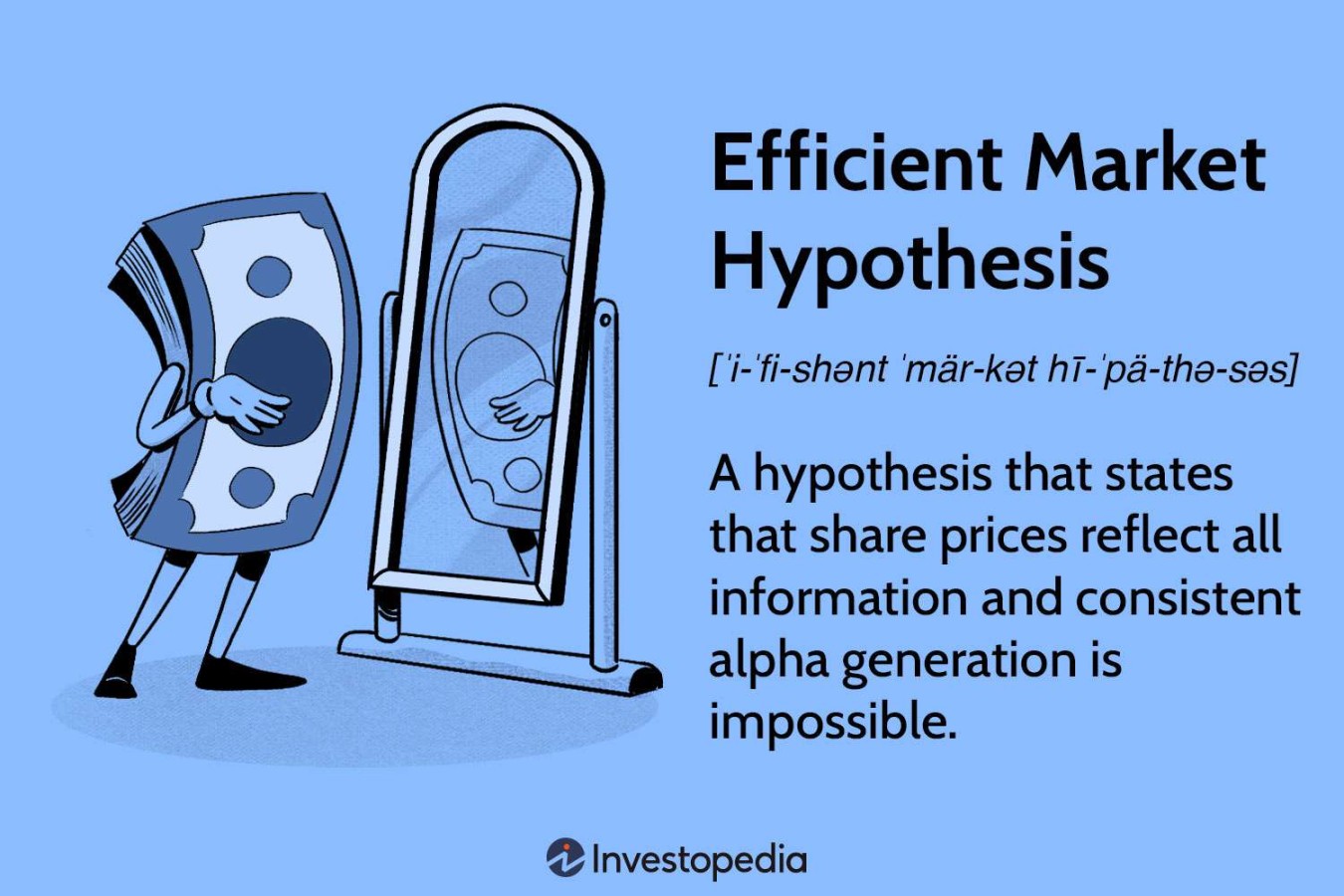The Efficient Market Hypothesis (EMH): A Comprehensive Guide
Unveiling the Efficient Market Hypothesis (EMH): A Cornerstone of Modern Finance
Introduction
In the intricate realm of finance, understanding market dynamics and predicting price movements has long been a coveted pursuit. Amidst this quest, the Efficient Market Hypothesis (EMH) emerged as a cornerstone of modern finance, offering a compelling explanation for asset pricing and investor behavior.
Delving into the Essence of the Efficient Market Hypothesis

The Efficient Market Hypothesis (EMH), a brainchild of financial economist Eugene Fama, posits that stock prices reflect all available information. This implies that stocks always trade at their fair value, making it virtually impossible for investors to consistently outperform the market through stock picking or market timing.
Three Levels of Market Efficiency
The EMH is typically categorized into three distinct levels:
1. Weak-Form Efficiency
In this form, the EMH asserts that stock prices incorporate all historical information, including past prices, trading volume, and dividends. This implies that technical analysis, which relies on past price patterns to predict future movements, is ineffective in generating excess returns.
2. Semi-Strong Form Efficiency

This level expands on weak-form efficiency by stating that stock prices also reflect all publicly available information, including news reports, analyst recommendations, and economic data. This suggests that fundamental analysis, which involves evaluating a company’s financial statements and industry outlook, is equally futile in achieving consistent outperformance.
3. Strong-Form Efficiency
The most stringent form of the EMH, strong-form efficiency, claims that stock prices incorporate even private or insider information. This implies that even those with access to privileged information cannot consistently beat the market.
Implications of the Efficient Market Hypothesis
The EMH carries profound implications for investors and financial markets:
1. Random Walk Theory
The EMH aligns closely with the Random Walk Theory, which suggests that stock prices follow a random, unpredictable path. This implies that past performance is not a reliable indicator of future results, making it challenging to consistently outperform the market.
2. Passive Investing
The EMH lends strong support to passive investing strategies, such as index fund investing, which involve tracking broad market indices like the S&P 500. Since the market is considered efficient, active strategies that attempt to beat the market are often deemed futile and costly.
3. Market Equilibrium
The EMH suggests that markets are self-correcting, as any mispricing in stock prices is quickly arbitraged away by rational investors. This leads to a state of market equilibrium where prices reflect true underlying value.
Criticisms and Challenges to the Efficient Market Hypothesis
Despite its widespread influence, the EMH has faced criticism and challenges:
1. Evidence of Market Anomalies
Empirical studies have identified market anomalies, such as the value premium and the momentum effect, which suggest that certain investment strategies may consistently outperform the market. These anomalies seem to contradict the EMH’s assertion of market efficiency.
2. Role of Behavioral Biases
Behavioral finance highlights the role of psychological biases, such as overconfidence, herding, and loss aversion, in investor decision-making. These biases may lead to irrational behavior and market inefficiencies, casting doubt on the EMH’s assumption of rational investors.
3. Difficulty in Verifying Strong-Form Efficiency
The strong-form EMH, which claims that even insider information cannot beat the market, is particularly difficult to verify empirically. The existence of insider trading scandals suggests that perfect market efficiency may not be fully realized.
Navigating the Investment Landscape with the EMH in Mind
Despite the criticisms, the EMH remains a cornerstone of modern finance, providing a valuable framework for understanding market dynamics and investment strategies.
1. Embracing Passive Investing
For most investors, passive investing through index funds or exchange-traded funds (ETFs) aligns well with the EMH’s principles. These strategies offer low-cost, diversified exposure to the market, reducing the likelihood of underperformance compared to active strategies.
2. Understanding Market Anomalies
While market anomalies may contradict


